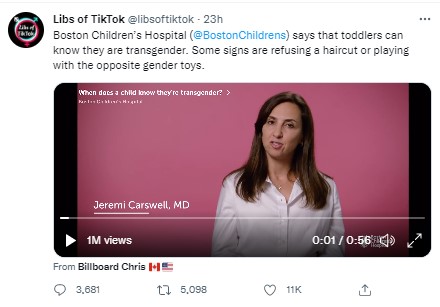The University of Oregon's Division of Equity and Inclusion is hard at work protecting us from wrong-think. This time, the professor who needs to quit expressing improper thoughts is Bruce Gilley. The following excerpt is from a press release issued by the Institute for Free Speech:
Portland, OR – A local university professor filed a federal lawsuit on August 11 against an officer in the University of Oregon’s Division of Equity and Inclusion for blocking him from the division’s official Twitter account.
“Apparently, the state’s flagship university has a concept of inclusion that does not include tolerance for differing viewpoints. When a government employee uses a Twitter account for official business, they are legally obligated to respect the First Amendment rights of those who respond,” said Del Kolde, Senior Attorney at the Institute for Free Speech.
Oregon resident and Portland State University Professor Bruce Gilley filed the lawsuit after being blocked by the division’s official Twitter account, @UOEquity, for seemingly no reason other than his viewpoint. Gilley had quote-tweeted a message from @UOEquity promoting a “Racism Interrupter” and chimed in with his own: “all men are created equal.” That, apparently, was enough to earn a block from the account’s manager.
“Nothing could better illustrate the problems with diversity ideology than a state university that bans a member of the public for quoting our Declaration of Independence. This lawsuit is necessary to defend our freedom of speech and the rule of law,” said Professor Gilley.
Gilley is no stranger to controversy. He often says what he believes, which is getting to be a scarce commodity in some departments of far too many American universities. Gilley has also fending off slipshod and illiberal attacks upon his balanced discussion of
the pros and cons of colonialism (his original article was titled "The Case for Colonialism.”)
Here is Gilley's thesis:
Research that is careful in conceptualizing and measuring controls, that establishes a feasible counterfactual, that includes multiple dimensions of costs and benefits weighted in some justified way, and that adheres to basic epistemic virtues often finds that at least some if not many or most episodes of Western colonialism were a net benefit, as the literature review by Juan and Pierskalla shows. Such works have found evidence for significant social, economic, and political gains under colonialism: expanded education, improved public health, the abolition of slavery, widened employment opportunities, improved administration, the creation of basic infrastructure, female rights, enfranchisement of untouchable or historically excluded communities, fair taxation, access to capital, the generation of historical and cultural knowledge, and national identity formation, to mention just a few dimensions.
I recommend reading Gilley's entire article, but here is his summary of the types of responses he received from highly educated modern day academics:
I find that my critics mostly misread my article, used citations they had not read or understood, failed to adhere to basic social scientific principles, and imposed their own interpretations on data without noting the possibility of alternatives. I note that a failure to adhere to academic standards, the main charge levelled against my paper, is rife among those who have levelled such charges. The use of their critiques to impose professional penalties and punishments on me as a scholar bespeaks the fundamental problems of ideological monoculture and illiberal censorship in academia today. I conclude that the problems of most research on the colonial past since roughly 1960 are so deep-rooted that nothing short of a complete rewriting of colonial history under appropriate scientific conditions will suffice in most cases.
Meanwhile, in a nearby state, a shitstorm ensued after Professor Stuart Regis refused to follow the University of Washington's directive to add a proper land acknowledgement on his computer science class syllabus:
When Professor Stuart Reges challenged the University of Washington’s position on land acknowledgements, administrators punished him, undermining his academic freedom. Today, backed by the Foundation for Individual Rights and Expression, Reges sued the university to vindicate his First Amendment right to express his opinion — even if it differs from the party line.
Colleges increasingly promote land acknowledgment statements that recognize indigenous ties to the land on which a college sits. On a list of syllabus “best practices,” UW’s computer science department encourages professors to include such a statement and suggests using language developed by the university’s diversity office “to acknowledge that our campus sits on occupied land.” The fact that the statement could be adapted seemed clear — until Reges wrote one that administrators did not like . . .
On Dec. 8, 2021, Reges criticized land acknowledgment statements in an email to faculty, and on Jan. 3, he included a modified version of UW’s example statement in his syllabus: “I acknowledge that by the labor theory of property the Coast Salish people can claim historical ownership of almost none of the land currently occupied by the University of Washington.” Reges’s statement was a nod to John Locke’s philosophical theory that property rights are established by labor.

